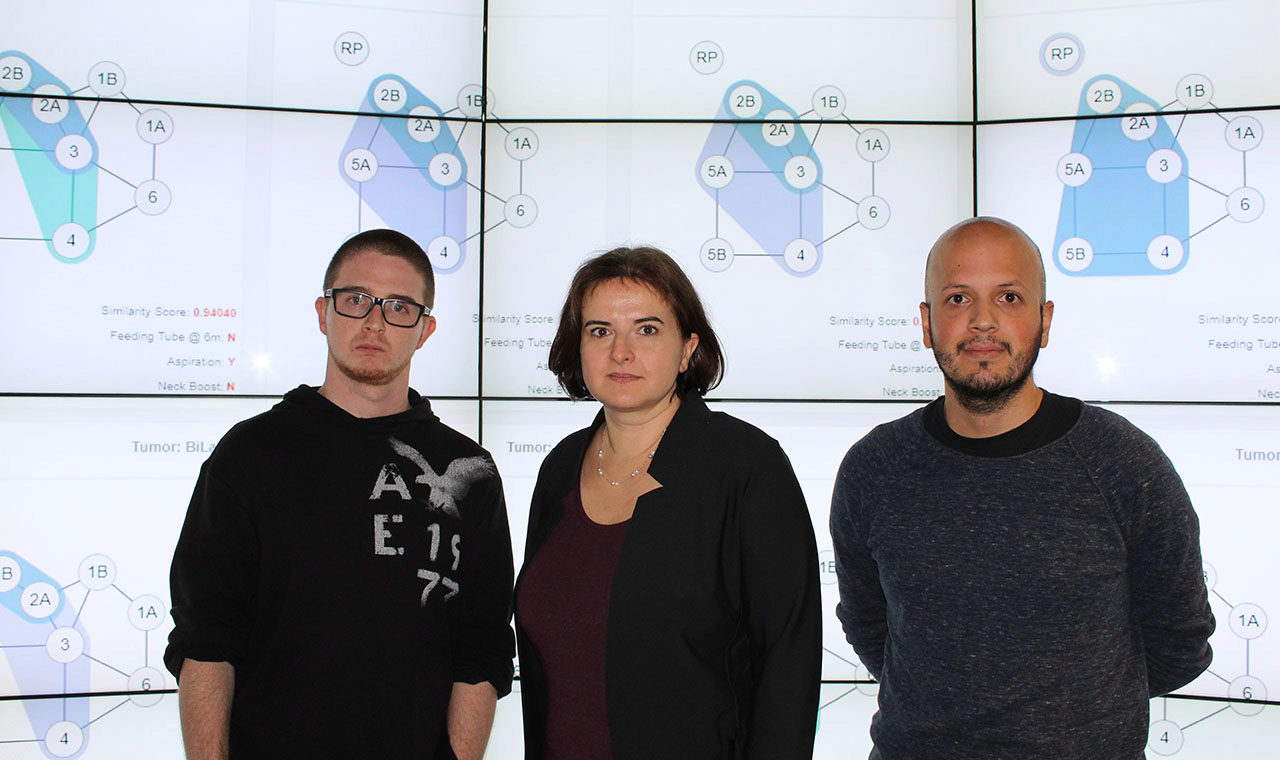UIC Computer Science/EVL Marai Developing Computer Programs to Aid Cancer Patients
November 27th, 2018 - Ongoing
Categories: Applications, Software, User Groups, Visualization, Visual Analytics, Visual Informatics

About
A November 27, 2018 story on the University of Illinois Cancer Center’s website profiles leading-edge cancer and computer science research being conducted by G. Elisabeta (Liz) Marai, a UIC Associate Professor of Computer Science and the department’s Electronic Visualization Laboratory (EVL), and a member of the Cancer Center.
Specifically, this article highlights two major grants to Marai from the National Institutes of Health (NIH) and National Cancer Institute (NCI) to work with collaborators at other institutions on the design and development of computer programs to assist medical professionals determine the best treatment options for cancer patients, specifically those suffering from head and neck cancer.
With collaborators at MD Anderson Cancer Center, University of Iowa, and University of Minnesota (NIH/NCI R01 grant CA214825-01), Marai and her graduate students are developing a computing methodology that will precisely determine health outcomes for patients with head and neck cancers based on demographics, toxicity and complex imaging data. While there are “large, rich repositories of patient data… risk prediction algorithms for cancers are rudimentary and incorporate minimal patient characteristics, largely due to a lack of computational methodologies....This research has the potential to change the standard of care and outcomes of treatment,” Marai explains.
A second NIH/NCI grant (R01 CA225190-01) enables Marai and the above-mentioned collaborators to develop computer models that combine imaging data, such as radiation dosage and spatial distribution, and nonspatial data, such as demographics and toxicity, in order to identify similar patients and assist medical professionals predict optimal treatment options. This research has the potential to improve the standard of care and the quality of life of surviving patients - not only for head and neck, lung, or brain cancer, but for other chronic conditions, such as mental health disorders, substance abuse diseases, or diabetes.
Read the entire story.